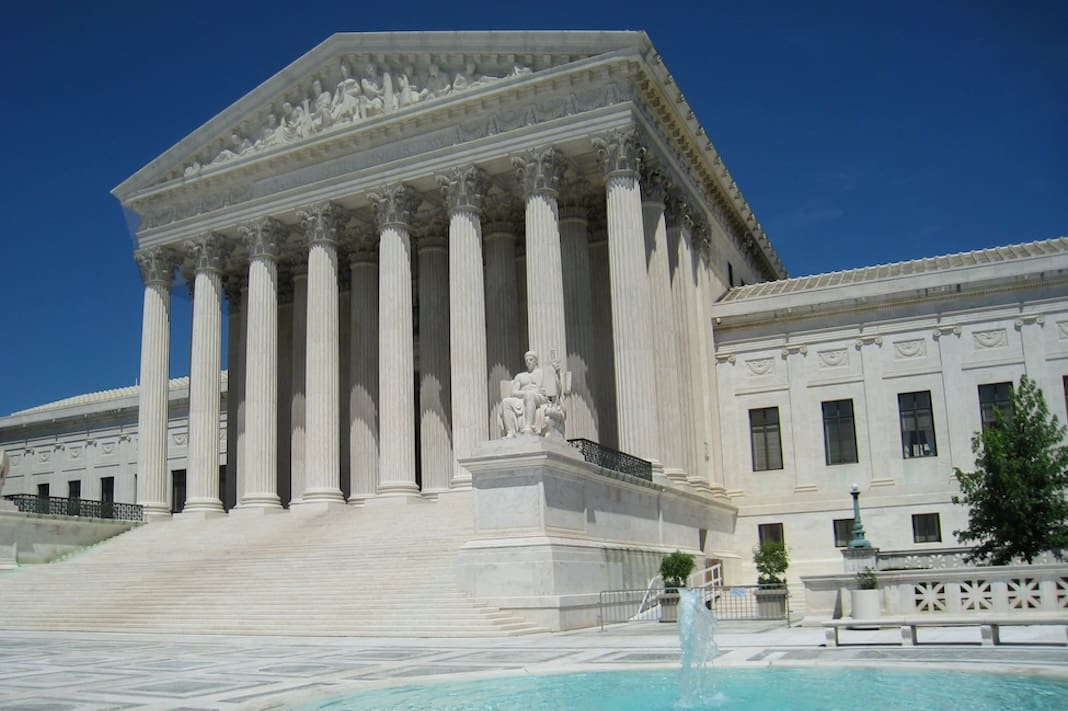Wisconsin Supreme Court candidate Daniel Kelly defended plan for state ‘marriage saver’

Emily Singer
The conservative nominee for Wisconsin’s highest court defended the religious program, which was later found to be unconstitutional.
In the race for Wisconsin’s open Supreme Court seat, conservative former Justice Daniel Kelly has said he is the “only” candidate “who has demonstrated what it means to be a Constitutionalist judge.”
Yet Kelly repeatedly defended state programs or laws that were ultimately ruled to have violated the Establishment Clause of the Constitution, which bans the government from creating laws that favor one religion over another religion or non-religion.
In 2000, Kelly defended the state of Wisconsin when then-Gov. Tommy Thompson, a Republican, tried to create a state-funded position that would help members of the clergy develop “standards” for marriages. The position was modeled after “Marriage Savers” — a now-defunct Christian ministry that sought to create “community marriage policies” to help lower divorce rates nationwide.
Wisconsin’s attorney general at the time, Jim Doyle, refused to defend the position, calling it “clearly unconstitutional” and “indefensible” because “its only purpose” was for “strengthening of religious marriages.” Thompson brought in Kelly to defend the program. Doyle, a Democrat, was elected governor of Wisconsin in 2002.
The state-funded job would have used hundreds of thousands of federal funds designated for Temporary Assistance for Needy Families (TANF) programs. The federal government gives states TANF funds to create “programs designed to help low-income families with children achieve economic self-sufficiency,” according to the program’s website.
Ultimately, the Wisconsin program was ruled to be an unconstitutional violation of the First Amendment. Federal Judge John C. Shabaz of the Western District of Wisconsin wrote in his decision that “the project premises the receipt of state assistance solely on an officiant’s affiliation with religion. This is its fatal constitutional flaw.”
This is not the only unconstitutional program Kelly defended.
In 2002, Kelly represented Faith Works, a faith-based organization that was receiving state funding for a program to help fathers get drug treatment and job training.
The Freedom from Religion Foundation filed a lawsuit against the organization, saying it was unconstitutional for the Wisconsin Department of Workforce Development to fund a religious group. Federal Judge Barbara Crabb of the Western District of Wisconsin ultimately agreed, ruling that the state gave “‘unrestricted, direct funding of an organization that engages in religious indoctrination” and that the “funding stream violates the Establishment Clause.”
Kelly is a graduate of Regent University School of Law, a right-wing Christian law school founded by televangelist Pat Robertson. The school seeks to create “Christ-centered attorneys” who have a “Christian worldview of law.” Kelly served as an editor of the Regent University Law Journal.
“Law originates with God and is impressed on His creation, including mankind,” Kelly wrote in a 1991 editor’s introduction. “We are, and must be, subject to the principles contained in Scripture.”
Kelly’s opponent, liberal Milwaukee County Judge Janet Protasiewicz, saidKelly’s legal education “raises some red flags for me.”
“I don’t know why someone would choose to go there unless you have views that really align with the views [of] Pat Robertson,” Protasiewicz said.
Wisconsin voters will choose between Kelly and Protasiewicz in an April 4 election that will determine the court’s ideological balance.
Published with permission of The American Independent Foundation.




